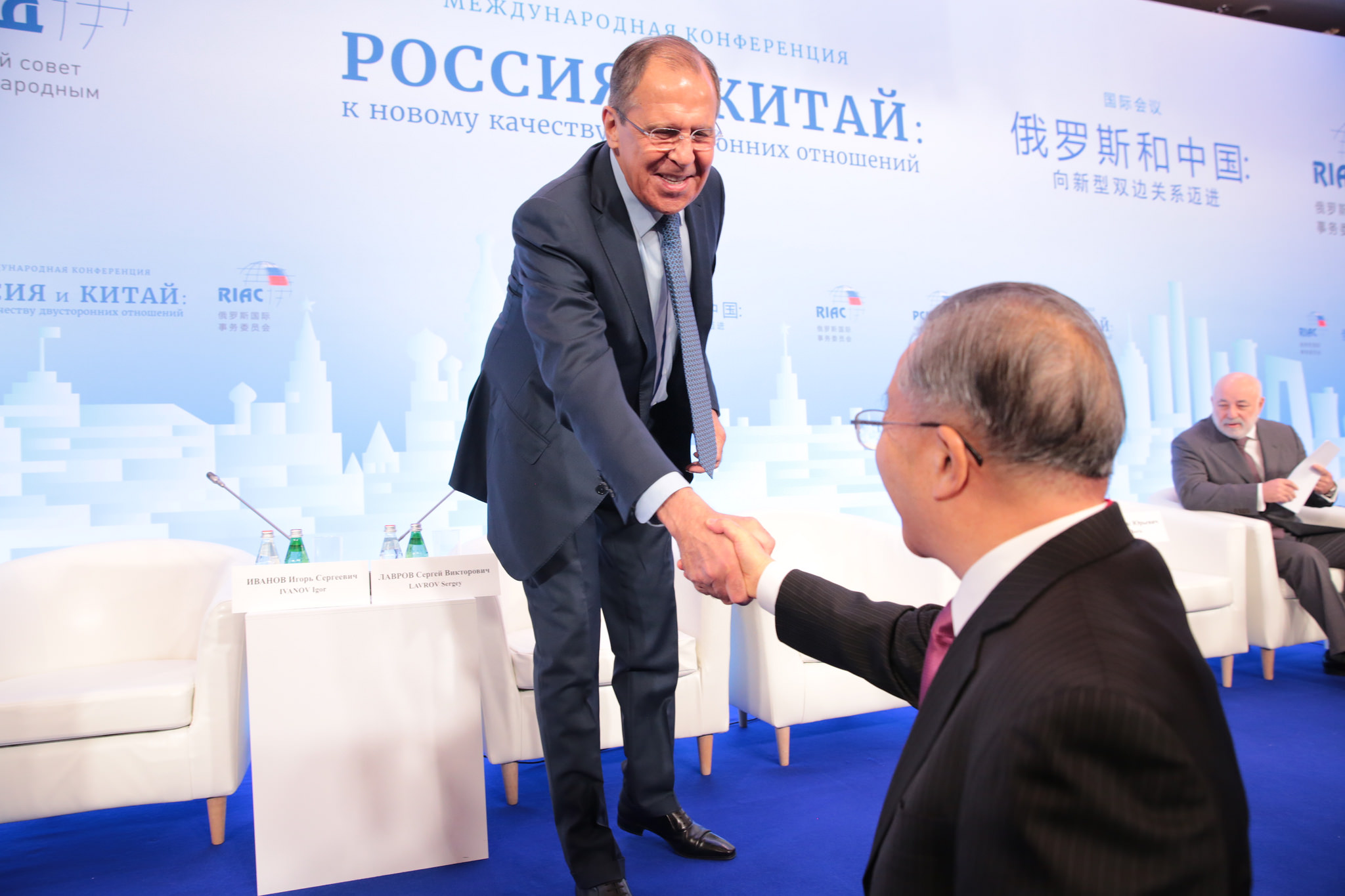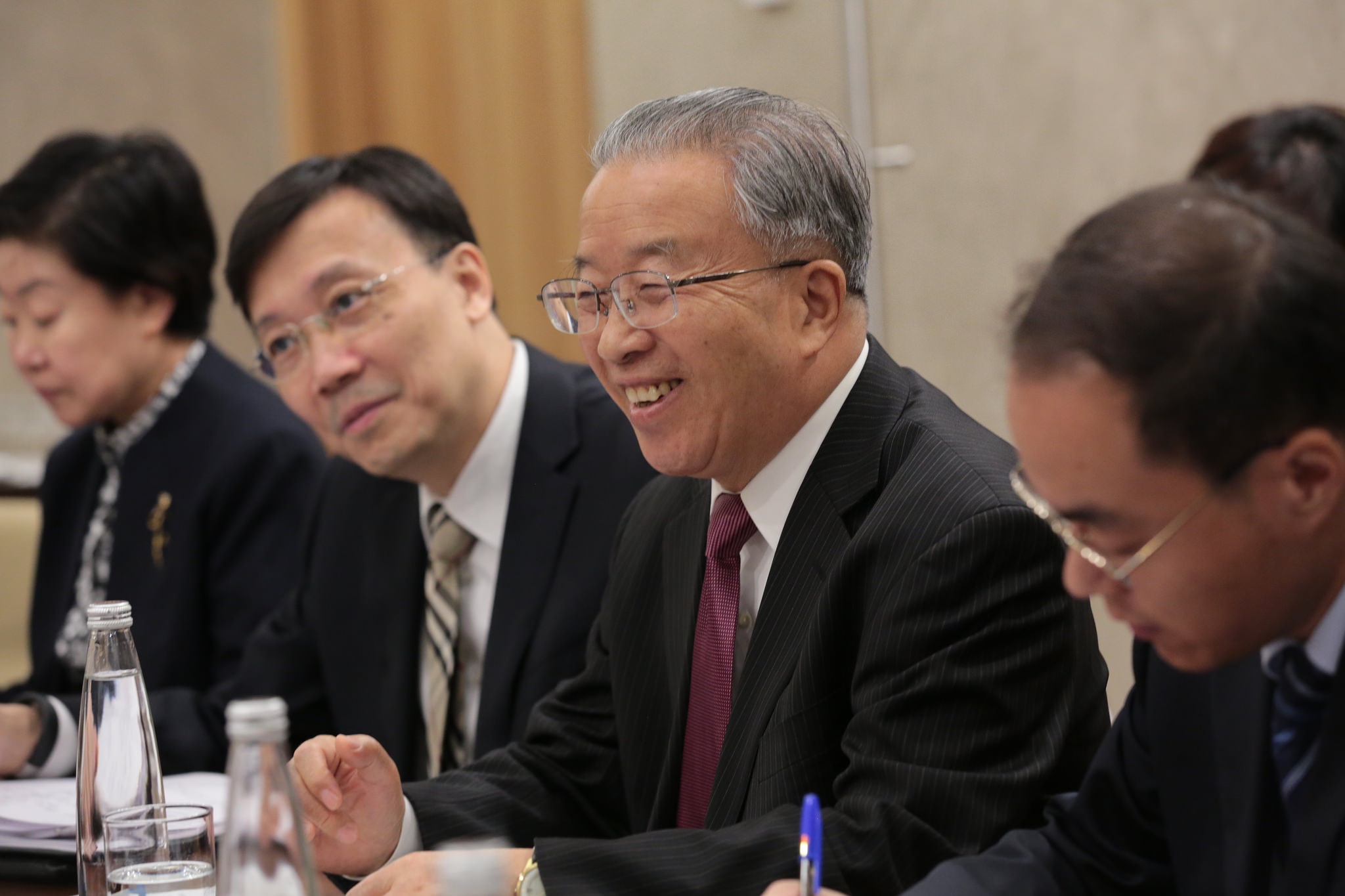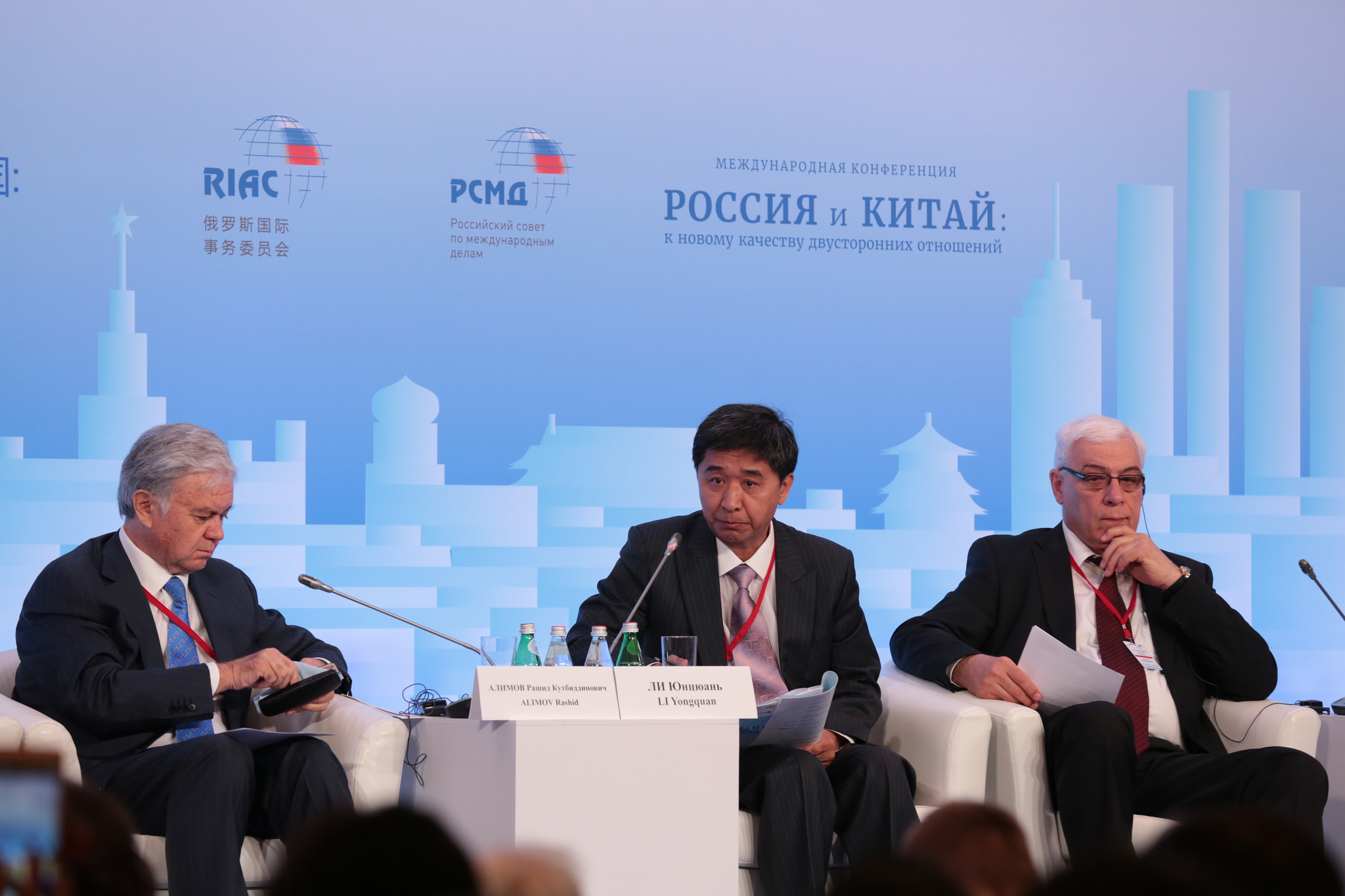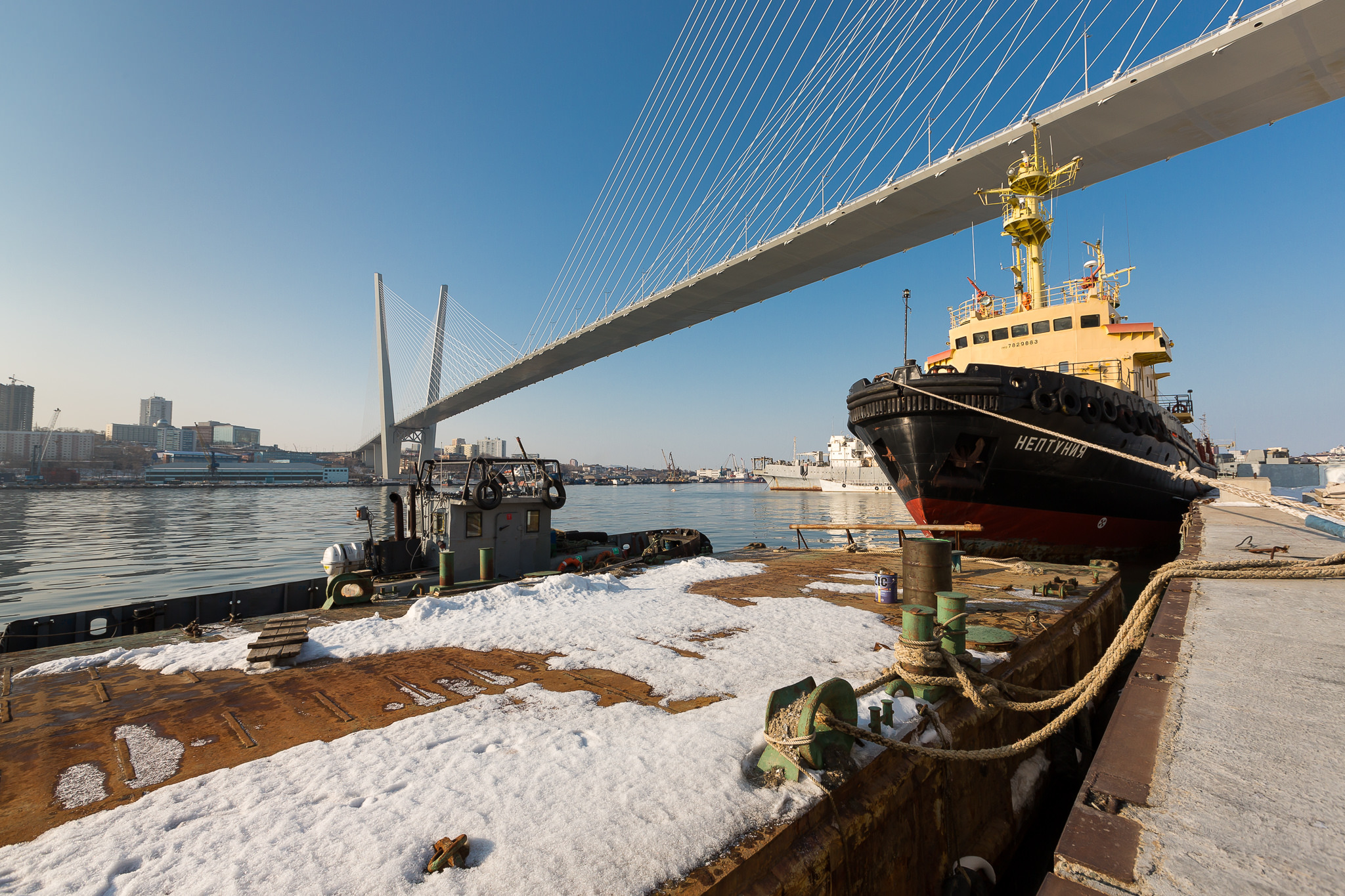Target $200 bln: Russia, China explore ways to stimulate trade

Russian Foreign Minister Sergei Lavrov (L) shakes hands with Chinese diplomat Dai Bingguo (R).
Flickr / Russian CouncilOn the same day that the leaders of Eurasian Economic Union (EAEU) countries agreed in Astana to start talks with China for a free trade agreement, experts from China and Russia gathered at the second Russia-China conference in Moscow. High on the agenda at the two-day conference organized by the Russia International Affairs Council were the barriers to greater trade ties between the countries. Experts also discussed the obstacles that cloud the future of a project to link the EAEU with China’s Silk Road Project. The idea to link these regional initiatives was first announced by Vladimir Putin and Xi Jinping a year ago.
Sino-Russian mistrust
Despite Russian Foreign Minister Sergey Lavrov once again emphasizing at the conference that Russia and China share a common or close position on many international issues, and are enjoying ideal political relations, Chinese experts raised the question of mutual mistrust.
 Chairman of the Chinese Chapter of the Russian-Chinese Committee of Friendship, Peace and Development Dai Bingguo (C). Source: Flickr / Russian Council
Chairman of the Chinese Chapter of the Russian-Chinese Committee of Friendship, Peace and Development Dai Bingguo (C). Source: Flickr / Russian Council
According to former Chinese Ambassador to Russia Li Fenglin, who was one of the most popular speakers at the conference, the bilateral relationship is at a 400-year high, but China wants Russia to trust it more.
“I have a feeling that Putin and Xi have a conceptual understanding of how we should work together, but there are problems of understanding in the mid-level,” Ambassador Li, who spoke perfect and idiomatic Russian, said. “It does not matter that we have different approaches. It's a normal thing for such big and different countries to have different approaches. The main thing is that they do not lead to contradictions.”
A Sino-Russian alliance?
Both sides agree that the kind of alliance that the USSR had with China in 1950s was destructive and culminated in a painful break up. In 2016, a big positive is the fact the countries no longer have a border dispute.
According to Li Yongquan, the Director of Russian, East European and Central Asian Studies at the Chinese Academy of Social Sciences, Sino-Russian relations have a great degree of depth.
“Having signed such an agreement in 2001, we now don't need to talk about any kind of alliance,” he said. “Our goal now is to focus on the practical side of our cooperation, and first of all on business.”
How to achieve the $200 bln trade target
Lavrov said the countries are still confident about achieving a bilateral trade target of $200 billion by 2020. The Russian Foreign Minister said it's achievable by building closer manufacturing ties and using the investment potential, but experts are not convinced about this approach.
Li Fenglin believes that Russia and China need to switch from a state-initiated approach to one that is powered by the private sector. “From Rosneft and Gazprom to middle and small size business,” he said.
According to Russian billionaire Viktor Vekselberg, who is also Chairman of the Russian-Chinese Chamber for Machinery, Technologies and Innovations, bilateral trade turnover does not come close to corresponding with the level achieved in political relations. He says this more the case when it comes to trade in areas other than commodities.
“We see tremendous examples of trade in the oil and gas sectors. But as for cooperation in mechanical engineering, I would call it a catastrophe,” Vekselberg said.
Vekselberg sees potential in connecting Russian technologies, which, he says are still more advanced in many fields, with China's manufacturing potential. He said that joint Russian-Chinese companies could become world leaders in building robots, new high-tech materials and plane. But to achieve this, the business community needs support, something that the chamber he heads can offer.
Problems with finance
Luo Yan, President of China CAMC Engineering, said there is a huge problem in financing joint projects.
“Chinese money will be welcomed in Russia, if Chinese adapt their conditions to Russia,” Fares Kilzie, Chairman of Creon Energy, said. “Russia in not a third world country and Russian companies will not accept the same conditions China gives in Africa.”
 SCO Secretary-General Rashid Alimov (L) and Director of the Institute of Russian, East European and Central Asian Studies under the Chinese Academy of Social Sciences (CASS)Li Yongquan(C). Source: Flickr / Russian Council
SCO Secretary-General Rashid Alimov (L) and Director of the Institute of Russian, East European and Central Asian Studies under the Chinese Academy of Social Sciences (CASS)Li Yongquan(C). Source: Flickr / Russian Council
A potential source for joint projects both in Russia and the EAEU countries may be the development banks. Yaroslav Lissovolik, Chief Economist in the Eurasian Bank of Development, told RBTH that the China-led Asian Infrastructure Investment Bank (AIIB) and the Asian Development Bank (ADB) agreed to jointly lend $3 billion for infrastructure projects in Central Asia.
Linking EAEU and the Silk Road
After Putin and Xi announced plans to link the two projects last year, Chinese experts studied the idea in detail.
“China didn't plan to connect the two projects,” Igor Denisov, Senior Research Fellow at the Institute for International Studies, MGIMO University said. “Before the political decision was taken [by Putin and Xi in May 2015], Chinese experts were against such a connection and were saying it was impossible.”
Li Yongquan is optimistic about the idea. “What kind of agenda have we had in Central Asia for the past 20 years? Security issues, colored revolutions and terrorism,” he said. “Now we can focus on economic development.”
According to the studies conducted by the Chinese Academy of Social Sciences, the EAEU’s internal trade and economic development is in deep stagnation and needs structural reforms with China's help. “Will that lead to more [economic] rivalry? Yes. There will be problems as well. But this is better, than stagnation,” Li Yongquan said.
According to Li Fenglin, the optimal way to link the EAEU and the Silk Road Project would be to create a free trade agreement within the Shanghai Cooperation Organization (SCO). “China suggested this idea a long time ago, but Russia didn't want to. Why? I don't know,” he said.
"It's not that Russia doesn't want to,” Denisov told RBTH. “Such things need careful consideration. There were fears that Russian market will be flooded with Chinese products.”
“The connection is important, because on the one hand it could end an unnecessary rivalry between China and Russia in the region, on the other, it would address regional economical problems, by creating a mechanism," Denisov added.
Read more: Russia to rule Vietnam arms market despite US entry
All rights reserved by Rossiyskaya Gazeta.
Subscribe
to our newsletter!
Get the week's best stories straight to your inbox

